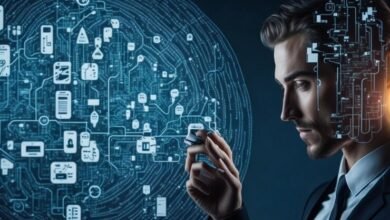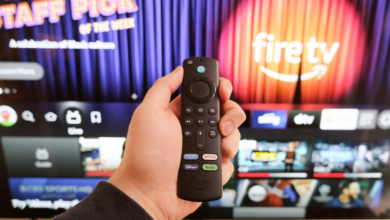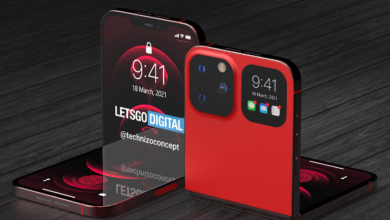7 Most popular Internet of Things technologies in 2024

The realm of technology is in a perpetual state of evolution, and as we stand on the brink of 2024, the Internet of Things (IoT) is poised to take center stage like never before. In this dynamic era, where connectivity is the lifeblood of innovation, IoT technologies are set to redefine the way we interact with our surroundings and devices. From the seamless integration of 5G connectivity to the infusion of artificial intelligence, the landscape of IoT in 2024 is a tapestry woven with threads of cutting-edge advancements, promising to usher in a new era of interconnected possibilities.
As we embark on this exploration of the 7 most popular Internet of Things technologies in 2024, we’ll unravel the intricacies of how these innovations are not merely shaping our digital future but are intricately woven into the fabric of our daily lives. It’s a journey through the realms of connectivity, intelligence, and efficiency, where the convergence of technology and human experience propels us into a future where the Internet of Things is not just a concept but a tangible force driving progress and connectivity on a global scale.
Understanding Internet of Things (IoT)
What is IoT?
At its core, IoT is a network of interconnected devices that communicate and share data without the need for human intervention. This concept has evolved significantly over the years, leading us to the sophisticated technologies we have today.
Evolution of IoT Technologies
The journey of IoT has been marked by continuous innovation. From its humble beginnings, IoT has grown to encompass a vast array of technologies, each playing a crucial role in shaping the connected future.
Read More: 7 Main Reasons Why IOT Is Important for Business
IoT Technologies in 2024
5G Connectivity
Internet of Things: The advent of 5G connectivity is set to revolutionize the IoT landscape. With faster and more reliable connections, devices can communicate seamlessly, paving the way for real-time applications and enhanced user experiences.
Artificial Intelligence (AI) Integration
The marriage of IoT and AI brings about unprecedented possibilities. Smart devices can now learn and adapt, making decisions based on complex data analysis. This synergy is poised to redefine how we interact with technology.
Edge Computing
As IoT devices generate massive amounts of data, the need for efficient processing becomes paramount. Edge computing, by decentralizing data processing, reduces latency and enhances the overall performance of IoT applications.
Blockchain in IoT
Security is a top concern in the IoT ecosystem. Blockchain technology offers a decentralized and tamper-proof solution, ensuring the integrity of data transmitted between devices.
Cybersecurity Measures
With the increasing prevalence of IoT, cybersecurity becomes a critical consideration. Robust measures are essential to safeguard sensitive information and prevent unauthorized access to connected devices.
Quantum Computing in IoT
The integration of quantum computing takes IoT to a new dimension. The ability to process complex algorithms at unprecedented speeds opens doors to solving problems previously deemed insurmountable.
Smart Cities Implementation
Cities are becoming smarter with IoT technologies. From efficient energy management to optimized traffic flow, the implementation of IoT in urban spaces enhances the quality of life for residents.
Impact on Industries
Healthcare
Internet of Things: In the healthcare sector, IoT technologies facilitate remote patient monitoring, predictive analytics, and efficient inventory management, improving overall patient care and streamlining operations.
Manufacturing
IoT-driven automation in manufacturing leads to increased efficiency and reduced downtime. Predictive maintenance and real-time monitoring enhance productivity and ensure optimal performance.
Agriculture
Precision agriculture, enabled by IoT, transforms traditional farming practices. Sensors collect data on soil conditions, weather patterns, and crop health, allowing farmers to make informed decisions for optimal yields.
Retail
The retail landscape is evolving with IoT-powered solutions. From personalized shopping experiences to inventory management, retailers leverage IoT to stay competitive in the digital age.
Challenges and Solutions
Security Concerns
Internet of Things: As IoT devices become more integrated into daily life, the risk of security breaches increases. Robust encryption and authentication protocols are essential to mitigate these risks and protect user data.
Interoperability Issues
The diverse range of IoT devices often leads to interoperability challenges. Standardization efforts and open-source solutions are crucial in ensuring seamless communication between devices from different manufacturers.
Data Privacy
With the vast amount of data generated by IoT devices, ensuring user privacy is paramount. Transparent data policies, user consent mechanisms, and encryption methods contribute to maintaining data privacy.
Energy Consumption
The proliferation of IoT devices raises concerns about energy consumption. Implementing energy-efficient designs and exploring alternative power sources are vital steps in addressing this challenge.
Future Trends and Innovations
Sustainability in IoT
Internet of Things: The future of IoT is intertwined with sustainability. Innovations in energy-efficient devices, eco-friendly materials, and responsible manufacturing processes contribute to a greener and more sustainable IoT ecosystem.
Human Augmentation
IoT technologies are increasingly being used for human augmentation. From smart prosthetics to brain-computer interfaces, these innovations enhance human capabilities, opening new frontiers in healthcare and beyond.
IoT in Space Exploration
The application of IoT in space exploration is an exciting frontier. Connected devices enable real-time data collection and communication in space missions, advancing our understanding of the cosmos.
Case Studies
Successful IoT Implementations
Internet of Things: Examining successful IoT implementations provides valuable insights. From smart cities like Singapore to precision agriculture in the Netherlands, these case studies showcase the positive impact of IoT on various scales.
Lessons Learned from Failures
Learning from failures is equally important. Understanding the challenges faced by projects that didn’t succeed helps refine future strategies and ensures continuous improvement in IoT technologies.
Consumer Adoption and IoT Devices
Smart Homes
Internet of Things: The concept of smart homes is gaining traction, with IoT devices seamlessly integrating into daily routines. From smart thermostats to security systems, consumers are embracing the convenience and connectivity offered by IoT.
Wearables
IoT-powered wearables go beyond fitness trackers. Smartwatches, augmented reality glasses, and health monitoring devices are becoming integral parts of consumers’ lives, contributing to a more connected and informed society.
Connected Vehicles
The automotive industry is undergoing a transformation with connected vehicles. From autonomous driving capabilities to real-time traffic updates, IoT technologies enhance the safety and efficiency of transportation.
The Role of IoT in a Post-Pandemic World
Internet of Things: The COVID-19 pandemic has accelerated the adoption of IoT in various sectors. From contactless technologies to remote work solutions, IoT plays a pivotal role in adapting to the challenges of a post-pandemic world.
Read More: The Impact of IoT and 5G on Businesses
Conclusion
In conclusion, the landscape of IoT technologies in 2024 is incredibly diverse and impactful. From 5G connectivity to the integration of quantum computing, the possibilities seem boundless. As we navigate the challenges and embrace the innovations, one thing is clear – the Internet of Things is shaping the future in ways we could only have imagined.
FAQs
How secure are IoT devices in 2024?
Security measures have significantly improved, with robust encryption and authentication protocols in place to protect user data.
What industries benefit the most from IoT technologies?
Healthcare, manufacturing, agriculture, and retail are among the industries experiencing substantial benefits from IoT implementations.
How is 5G connectivity changing the IoT landscape?
5G connectivity revolutionizes IoT by providing faster and more reliable connections, enabling real-time applications and enhancing user experiences.
What are the challenges in implementing IoT technologies?
Challenges include security concerns, interoperability issues, data privacy, and energy consumption, all of which require careful consideration and innovative solutions.
How is IoT contributing to sustainability?
Innovations in energy-efficient devices and eco-friendly materials contribute to a more sustainable IoT ecosystem, aligning with global efforts towards environmental responsibility.











